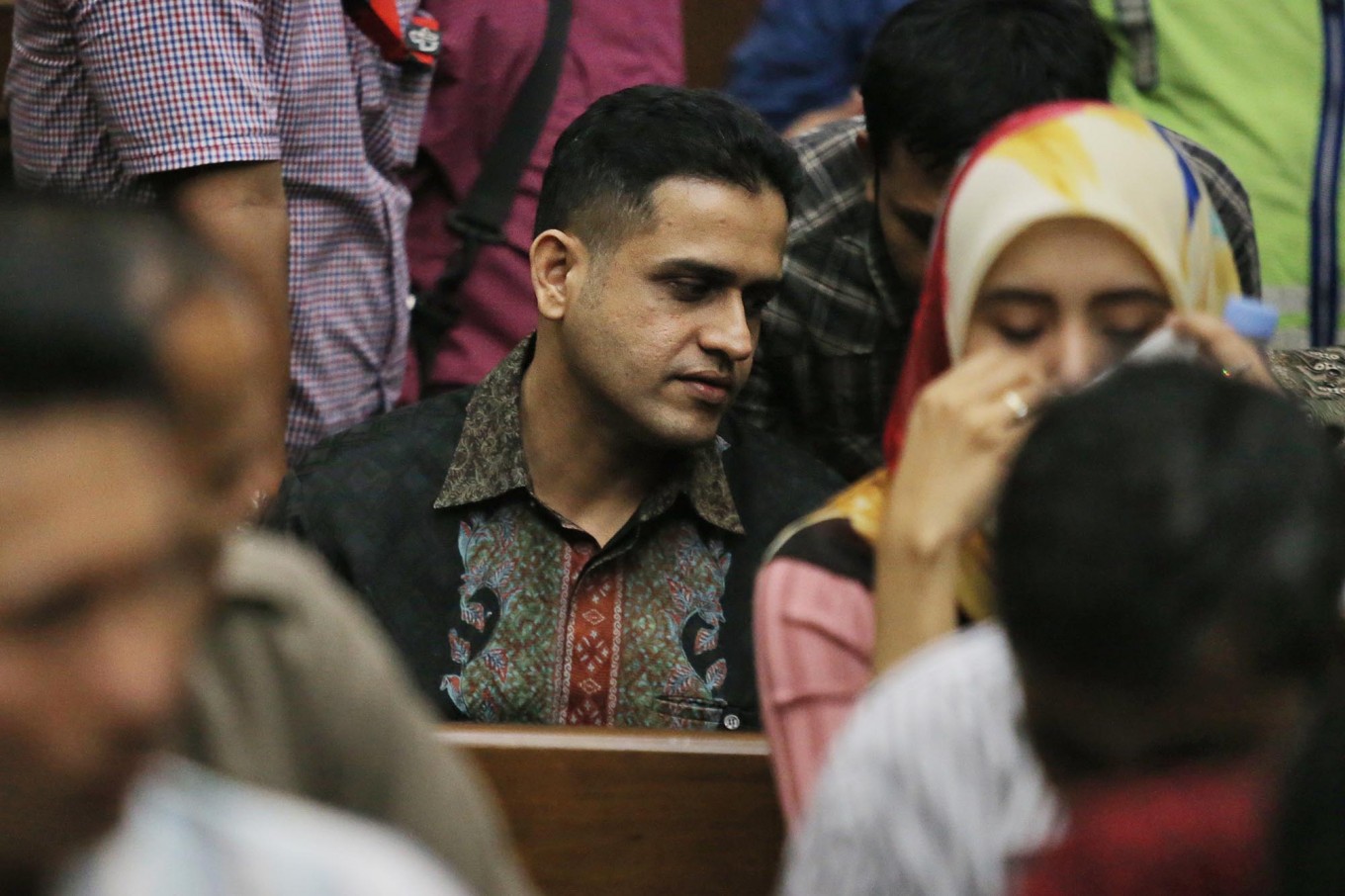Popular Reads
Top Results
Can't find what you're looking for?
View all search resultsPopular Reads
Top Results
Can't find what you're looking for?
View all search resultsNazaruddin eligible for sentence cut due to justice collaborator status: Yasonna
Former Democratic Party treasurer and graft convict Nazaruddin was released from Sukamiskin Penitentiary in Bandung, West Java, on June 14 after receiving two months' parole.
Change text size
Gift Premium Articles
to Anyone
L
aw and Human Rights Minister Yasonna Laoly has asserted that former Democratic Party treasurer and graft convict M. Nazaruddin is eligible for parole and four years of remission on account of his status as a justice collaborator in several corruption cases.
Yasonna said the ministry had received a letter from the Corruption Eradication Commission (KPK) in June 2014 explaining that the former Dems politician had cooperated with law enforcement to uncover corruption cases pertaining to the construction of sports training and education centers.
“According to Government Regulation No. 99/2012 on prisoner’s rights, he was eligible for remissions,” the minister said on Monday.
The 2012 regulation stipulates that graft convicts are eligible for remission if they cooperate with law enforcement to uncover a graft case and are given the status of justice collaborator.
Nazaruddin was released from Sukamiskin Penitentiary in Bandung, West Java, on June 14 after receiving two months' parole.
The antigraft body responded to Nazaruddin’s release on parole by saying that the commission had never recommended that the government grant a sentence cut for the graft convict. While acknowledging that the politician had been cooperative in uncovering several graft cases, the KPK claimed it had never given him justice collaborator status.
Read also: Alternatives to detention must be part of ‘new normal’, govt official says
Nazaruddin was convicted in 2012 in a bribery case linked to the construction of the Sea Games athlete’s village in South Sumatra. He was eventually sentenced to seven years behind bars by the Supreme Court following an appeal.
In 2016, the corruption court sentenced the politician to six years in prison for laundering nearly Rp 600 billion (US$42 million) he obtained from corrupt practices during his term as party treasurer and a lawmaker.
Although he was supposed to serve 13 years in prison, Nazaruddin received several remissions, amounting to a total of four years.
Yasonna said Nazaruddin was deemed eligible for the parole as he had cooperated in both cases and paid the fines.
“He should be granted parole after serving two-thirds of his sentence as stipulated in the 2012 regulation,” said the minister. “However, since his is a high-profile case, we asked the KPK for a recommendation on Feb. 21, 2018, but they denied [the parole].”
Yasonna said granting parole and remissions for graft convicts who had been given justice collaborator status was important so they would cooperate with law enforcement.
"If we don't give them such rewards, they would not cooperate with investigators [in uncovering their cases].”










